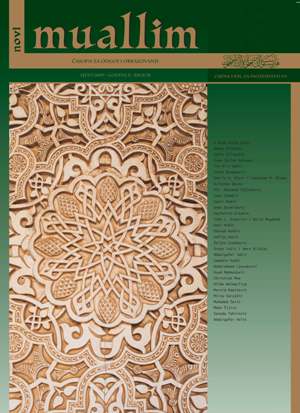INTEGRATION AND SECURITY PERSPECTIVE OF THE ADMINISTRATION OF ISLAMIC AFFAIRS IN SECULAR STATES: THE CASE OF B&H
ADMINISTRIRANJE ISLAMSKIH PITANJA U SEKULARNOJ DRŽAVI: ISKUSTVA JUGOISTOČNE EVROPE SARAJEVO, (17. - 19. APRIL 2009.)
DOI:
https://doi.org/10.26340/muallim.v10i38.939Abstract
For more than 500 years Bosnian Muslims have maintained the Hana tradition, following a moderate and open minded version of Islam, tolerant of other communities and compatible with western values. The Islamic revival in BiH, which began after the secularist Tito period, underwent radical changes from the beginning of the war in April 1992. It is reported that several hundred Mujahidin joined with and fought along side Bosniacs during the 1992-5 war in BiH. Highly religious and motivated, some foreign fighters brought a specific understanding of Islam with them and they tried to indoctrinate those ideas into Bosniac minds, having the opportunity to preach and spread propaganda freely. Thus the Sala ideas surfaced for the first time on a wider scale. This foreign creed was totally different from the moderate and traditional version of Islam in BiH. BiH in the 1990s was in a unique situation: it had the political and mobilizing structures in place for the spreading of a different interpretation of Islam. Nevertheless, it lacked the cultural framework around which to mobilize social support. Nor did it have a context in which to develop a strong Sala stream in BiH. Eventually, although Salasm has taken root in BiH for the last fifteen years, the number of its followers is not as important as some media try to show. The following features of Islam in BiH support this assessment: 1) The exclusive Sunni tradition reaching back to Ottoman times with strong influence from the moderate Hana Law School and Sufi orders; 2) The unbroken tradition of a central spiritual authority with a well-organized Ulama or Islamic scholars structure; 3) Centuries of co-existence with other world religions and confessions including more than 130 years in a secular state with rule-of-law elements; and 4) Compatibility of the legitimate Islamic institutions with the secular state: a wellorganized Ulama, Madrasas as publicly recognized secondary schools, Islamic foundations (Waqfs) and (until 1946) Shariacourts for family law.
Prijevod: Arnela Bećirović-Zimić
Downloads
Published
How to Cite
Issue
Section
License
Naknada:
a. Časopis ne naplaćuje naknadu za obradu članaka (APC) i naknadu za podnošenje članaka.
Autori koji objavljuju u ovom časopisu pristaju na sljedeće uvijete:
- Autori zadržavaju autorska prava i pružaju časopisu pravo prvog objavljivanja, pri čemu će rad jednu godinu po objavljivanju biti podložan licenci Creative Commons imenovanje koja omogućuje drugima da dijele rad uz uvijet navođenja autorstva i izvornog objavljivanja u ovom časopisu.
- Autori mogu izraditi zasebne, ugovorne aranžmane za ne-ekskluzivnu distribuciju rada objavljenog u časopisu (npr. postavljanje u institucionalni repozitorij ili objavljivanje u knjizi), uz navođenje da je rad izvorno objavljen u ovom časopisu.


